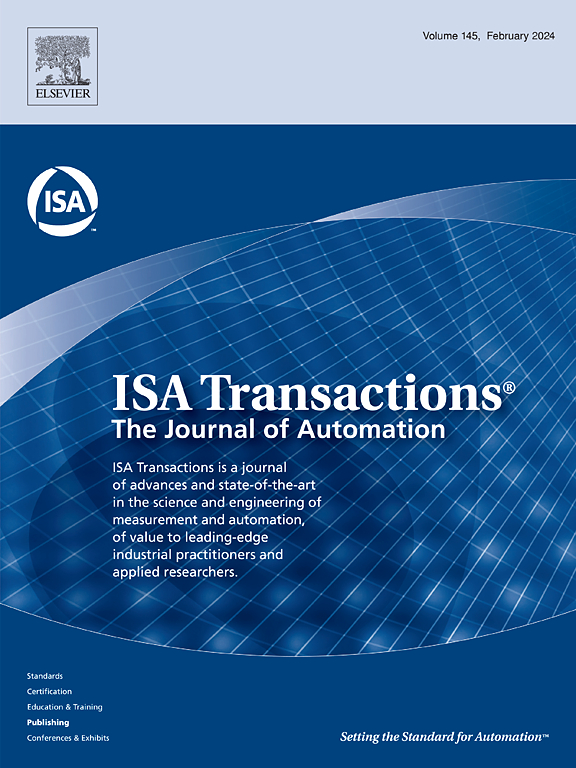基于 ADP 的部分未知开关非线性系统在线补偿分层滑模控制与执行器故障。
IF 6.5
2区 计算机科学
Q1 AUTOMATION & CONTROL SYSTEMS
引用次数: 0
摘要
本文研究了一种基于自适应动态编程的在线补偿分层滑模控制问题,该问题适用于一类具有执行器故障和不确定扰动的部分未知开关非线性系统。首先,通过引入与标称系统分层滑模曲面相关的成本函数,可将原始控制问题等价转换为最优控制问题。为获得该最优控制策略,通过自适应动态编程方法求解了汉密尔顿-雅各比-贝尔曼方程。与传统的自适应动态编程方法相比,识别器-批判网络结构不仅克服了未知内部动态的限制,还消除了演员网络产生的近似误差。通过梯度下降方法和经验重放技术对批判者网络的权重进行调整,从而放宽了激励的持续性条件。然后,在没有故障检测和隔离单元的情况下,使用包含分层滑模曲面的补偿项来抵消不确定的致动器故障。基于 Lyapunov 稳定性理论,闭环非线性系统的所有状态在均匀最终有界的意义上都是稳定的。最后,我们给出了数值和实际例子来证明我们提出的在线补偿控制策略的有效性。本文章由计算机程序翻译,如有差异,请以英文原文为准。
ADP-based online compensation hierarchical sliding-mode control for partially unknown switched nonlinear systems with actuator failures
This article investigates an adaptive dynamic programming-based online compensation hierarchical sliding-mode control problem for a class of partially unknown switched nonlinear systems with actuator failures and uncertain perturbations under an identifier-critic neural networks architecture. Firstly, by introducing a cost function related to hierarchical sliding-mode surfaces for the nominal system, the original control problem is equivalently converted into an optimal control problem. To obtain this optimal control policy, the Hamilton–Jacobi–Bellman equation is solved through an adaptive dynamic programming method. Compared with conventional adaptive dynamic programming methods, the identifier-critic network architecture not only overcomes the limitation on the unknown internal dynamic but also eliminates the approximation error arising from the actor network. The weights in the critic network are tuned via the gradient descent approach and the experience replay technology, such that the persistence of excitation condition can be relaxed. Then, a compensation term containing hierarchical sliding-mode surfaces is used to offset uncertain actuator failures without the fault detection and isolation unit. Based on the Lyapunov stability theory, all states of the closed-loop nonlinear system are stable in the sense of uniformly ultimately boundedness. Finally, numerical and practical examples are given to demonstrate the effectiveness of our presented online compensation control strategy.
求助全文
通过发布文献求助,成功后即可免费获取论文全文。
去求助
来源期刊

ISA transactions
工程技术-工程:综合
CiteScore
11.70
自引率
12.30%
发文量
824
审稿时长
4.4 months
期刊介绍:
ISA Transactions serves as a platform for showcasing advancements in measurement and automation, catering to both industrial practitioners and applied researchers. It covers a wide array of topics within measurement, including sensors, signal processing, data analysis, and fault detection, supported by techniques such as artificial intelligence and communication systems. Automation topics encompass control strategies, modelling, system reliability, and maintenance, alongside optimization and human-machine interaction. The journal targets research and development professionals in control systems, process instrumentation, and automation from academia and industry.
 求助内容:
求助内容: 应助结果提醒方式:
应助结果提醒方式:


